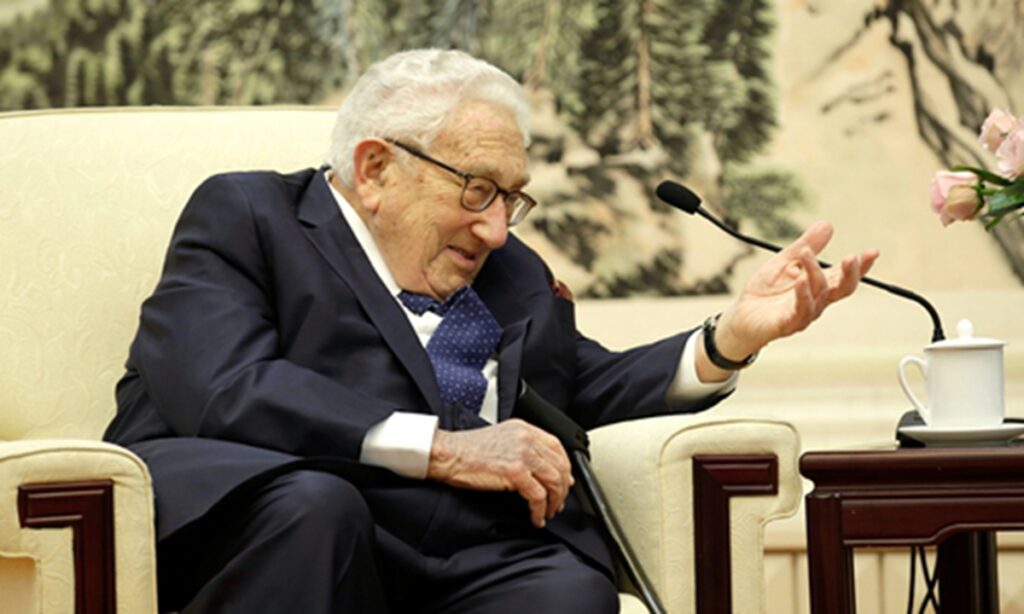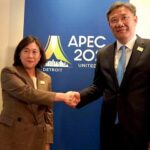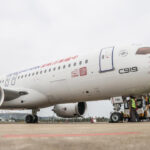Saturday is the 100th birthday of former US secretary of state Henry Kissinger. Due to his huge personal reputation and legendary experience in the international political arena, US media have written articles looking at the “Kissinger century,” and in doing so, have pointed out that the world finds itself in “a dangerous moment,” warning that there is “a resurgence of toxic populism around the world and the emergence of a new Cold War between the US and China.” Therefore, “it is time for the world, for its own sake, to rediscover him.”
It is impossible to make simple judgments about Kissinger. He has encountered severe criticism and skepticism in the US, and some of the decisions he made while in the White House have also been criticized, but no one can ignore him. His irreplaceable role in three major world events that changed history – Nixon’s visit to China, the end of the Vietnam War, and the easing of US-Soviet relations – has secured him a place in the annals of history. Kissinger can transcend the shackles of values and domestic politics, proceed from the US’ real national interests pragmatically and rationally, and promote bold and imaginative diplomacy, which is what the US lacks most today.
After leaving the power center of the White House, Kissinger ended his political and diplomatic career, but embarked on a longer path as a thinker and strategist. His attention and curiosity of the real world have never declined, and his influence is profound, playing a more prominent and realistic guiding role. The current complex and turbulent international situation has drawn deep concerns from the world. Many people are now paying more attention to Kissinger’s views, and even hope that this centenarian can point to an effective solution to the current deadlock. This not only illustrates Kissinger’s great success as a strategist, but also reflects people’s disappointment that no one in the US has taken over the reins from such a strategist. The disruption of thought in the US is already an indisputable fact.
Reviewing Kissinger’s diplomatic achievements, many media specifically mentioned that he was committed to understanding other countries as much as possible, not only at the political level, but also their culture and philosophy. This is considered to be something many contemporary American leaders lack. Facts have repeatedly confirmed Kissinger’s vision and judgment. As early as in the 1990s, he predicted NATO’s eastward expansion. In the past two years, Kissinger has repeatedly issued strong warnings against a “new Cold War” between China and the US. He also reminded Washington not to misjudge China’s thinking. His policy propositions feature strong rationality and pragmatism, the lack of which is precisely the biggest shortcoming and flaw in American diplomacy after the end of the Cold War, and the fundamental reason why the US has repeatedly made mistakes in foreign policy.
Unfortunately, in today’s Washington, where “internet celebrity politics” is rampant, Kissinger’s advice goes unheard, and some even consider him “outdated.” For over half a century, Kissinger has shuttled between China and the US nearly 100 times, making him the American political figure who has visited China the most. However, Washington has turned a blind eye to his keen observations of the historical reality between China and the US, as well as his pragmatic recommendations. Instead, many members of the US Congress who can’t even locate Taiwan or Xizang on a map have gained the most publicity, gradually influencing and even dominating the direction of US policies with their radical anti-China proposals. This is the tragedy of current American politics.
Washington is gradually losing the political courage demonstrated by veteran politicians like Kissinger. Throughout his career, Kissinger often put forward bold propositions that many wouldn’t even dare imagine. Establishing diplomatic relations with “socialist China” is the most prominent example. It successfully proved that both China and the US can win, and a loyal American patriot can also become “a longtime friend and good friend of the Chinese people.” This fact remains true today, but Washington no longer possesses this kind of courage. In order to survive in Washington as a “China expert,” one must first become an “anti-China expert” and even face sharp scrutiny for engaging in normal communication and contact with China, as well as accusations of betraying national interests. While Washington politicians compete to display their toughness on China, they are actually demonstrating political cowardice.
Last week, The Economist conducted an eight-hour interview with Kissinger, during which he said, “The fate of humanity depends on whether America and China can get along.” Today’s China-US relationship and international situation are entirely different from half a century ago, but it does not mean that the fundamental logic of peace and prosperity has changed. If common challenges pushed China and the US beyond their divergences 50 years ago, then today, the immense and extensive shared interests between the two countries provide sufficient reasons for both sides to avoid confrontation. For the hotheaded politicians in Washington, Kissinger’s realism is not outdated. On the contrary, it is the remedy they need.
As is well known, Kissinger is first and foremost an American and a staunch defender of American interests, but has earned the respect of the Chinese people due to his wisdom, rationality, and profound insights. The world hopes to see more Americans like him, and the US will gain more respect as a result. On the occasion of Dr. Kissinger’s centenary, we wish him good health, and we also hope that Washington, at this critical juncture in history, will reflect on the wisdom of this elder statesman.
(Global Times)




